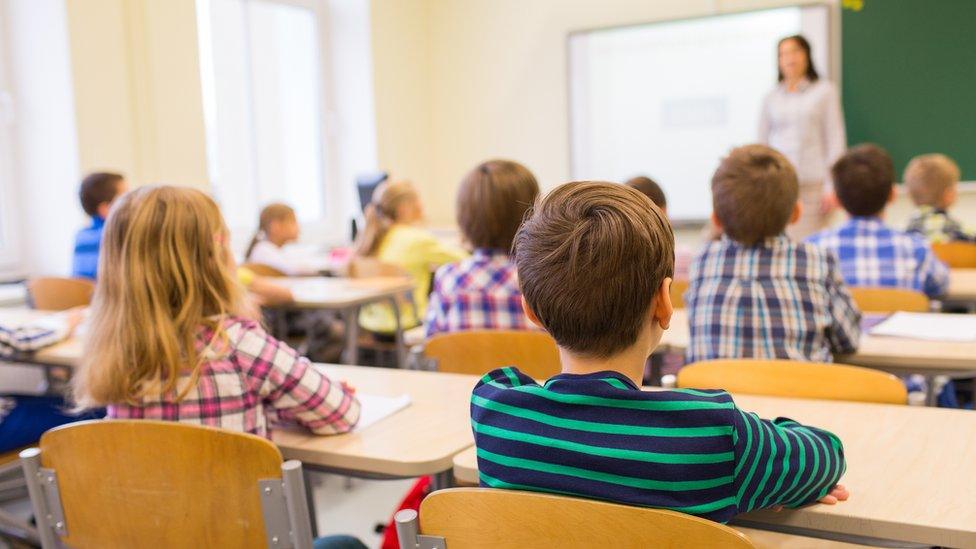Australian students to be taught about 'male privilege'
- Published

A state in Australia has launched an education programme designed to smash gender stereotypes and tackle the root causes of domestic violence.
The "respectful relationship" curriculum, external will be mandatory in all schools in Victoria from next year.
Students will explore issues around social inequality, gender-based violence and male privilege.
However, a report on a 2015 pilot trial accused it of presenting all men as "bad" and all women as "victims".
Pay inequality, anger management, sexual orientation and the dangers of pornography will be among the topics explored by students in the programme, costing A$21.8m (£13.5m; $16.5m).
Primary school students will be exposed to images of both boys and girls doing household chores, playing sport and working as firefighters and receptionists.
The material includes statements including "girls can play football, can be doctors and can be strong" and "boys can cry when they are hurt, can be gentle, can be nurses and can mind babies".
In high school, students will be taught the meaning of terms including pansexual, cisgender and transsexual and the concept of male privilege.
A guide for the Year 7 and 8 curriculum states: "Being born a male, you have advantages - such as being overly represented in the public sphere - and this will be true whether you personally approve or think you are entitled to this privilege."
It describes privilege as "automatic, unearned benefits bestowed upon dominant groups" based on "gender, sexuality, race or socio-economic class".
Year 11 and 12 students are introduced to the concept of "hegemonic masculinity" which "requires boys and men to be heterosexual, tough, athletic and emotionless, and encourages the control and dominance of men over women".
Breaking the cycle
Some critics have suggested that although more needs to be done to protect the female victims of domestic violence, the programme lacks objectivity and nuance.
Jeremy Sammut, a senior research fellow at the Centre for Independent Studies, a libertarian think tank, told The Australian newspaper that it amounted to "taxpayer-funded indoctrination" of children.
"The idea behind this programme - that all men are latent abusers by nature of the 'discourse' - is an idea that only cloistered feminist academics could love," Dr Sammut said.
"A lot of evidence suggests that like child abuse, domestic violence is a by-product of social dysfunction: welfare, drugs, family breakdown."
The royal commission that recommended education as the key measure for preventing future family violence found that 25% of victims of family violence are men. Critics argue that point is often overlooked.
Education Minister James Merlino, external has said education is the key to ending the "vicious cycle" of family violence.
"This is about teaching our kids to treat everyone with respect and dignity so we can start the cultural change we need in our society to end the scourge of family violence," he said.